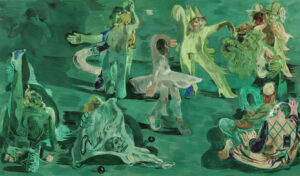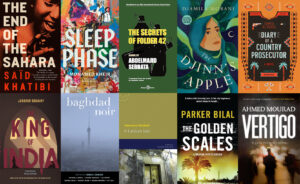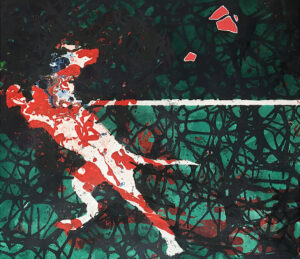I wasn’t aware that I had fallen into a gloomy trap. She encouraged me to bark at men and attack women whose faces were more beautiful than hers.
I am big and fluffy, like a sheepdog. I used to live with a kind, pretty lady to whom I remained loyal for many years. But I dropped a clanger one day and I was too guilt-ridden to show what I had done. My punishment was as heavy as my sin. My owner sent me away. So I became homeless, starving, suffering, and grubby after a life of being cleansed, perfumed, and embellished with the most luminous of collars.
Down on my bad luck, a plain-looking woman reached out and picked me up after a couple of weeks in the street that felt like forever. I wasn’t comfortable with her appearance. But I accepted my fate. I needed a roof over my head, a hand to feed me, and a motherly heart.
I sensed her callousness the very first moment I was brought into her house. She didn’t rush to give me water or food though my mouth was dry and my stomach was aching with hunger. She left me in the corner of the entrance hall for hours. Then she tried to lure me with a steak while screaming in my face.
“Listen! From now on, you’re going to be my servant and guard.” Her tone was serious.
I was in a horrible state, with no other choice but to accept my fate. I bowed my head. I wasn’t aware that I had fallen into a gloomy trap until her wicked intentions seeded themselves inside of me. She encouraged me to bark at men and attack women whose faces were more beautiful than hers. After that, she taught me to steal documents from bags and pickpocket the wealthy.
Let me open my heart to you. I sometimes rebelled because, as I mentioned previously, I’m a pet, not an animal accustomed to committing crimes. But her eccentric methods transformed me into her doppelganger, and imbued with her characteristics. My conscience, though, would sometimes be pricked, and I would burst into tears. Remorse would almost eat me up alive.
One day, I escaped, looking for another home where I could find mercy and safety. With friendlessness, I approached children playing in front of houses, wishing that one of them would fall in love with me and force their family to host me. Sadly, all doors were closed. The last words I heard were from a mother, rebuking her son: “Beware of this filth. The evil deeds of that dog are known throughout the neighborhood.”
So I returned to that ugly woman, shattered and abased. No sooner had she seen me she unleashed relentless torment and torture. She clipped my nails, mutilated a part of my tail, and stained my fur with black paint. She then locked me in the basement bathroom. I was starved and thirsty. When I felt that death was near, I barked loudly, pleading with her. She finally set me free.
“I’ve punished you enough,” she smirked. “I don’t think you’ll do that again.”
Sadly, I lowered my head, crawled towards her, and rubbed myself against her feet. I then barked in a submissive voice to affirm that I’d willingly follow all her commands.
She was pleased because she was sure that I’d be her slave forever. She kindled a deep-seated desire to exploit me and get me to do her other jobs. She hid a watch-size recorder in my collar, and then pushed me across the thresholds of nearby houses, eager to uncover their secrets or what she presumed was being said about her. Her efforts yielded no fruit, since I bit the recorder, and the people there utterly engrossed in their own affairs, ignored her.
One morning, she clapped her hands in the same way she would call a waiter in a café. I rushed towards her and squeezed myself at her feet. She kicked me and ordered me to listen to what she had to say. My senses sharpened.
“People in this country only respect those with prestigious titles. Since I have nothing, I must get some.”
I stuck out my tongue and let out a soft bark, a subtle testament to my understanding.
She continued, “Of course, I can’t be ‘Her Imminent’ or even ‘Minister.’ Such titles are out of my reach. But some titles are free, and many claim them. Why shouldn’t I be one of those?”
I bowed my head, as usual, while my body shuddered. She assumed I was mocking her, and yelled, “Raise your head and listen carefully. Go right away to the market for titles. Scoop out as many as you can, and come back quickly.”
I dashed out, imagining what she was going to do. She would stretch out on her sofa, with her feathers of arrogance ruffled. She would raise her hands. Instead of fragrant perfume, the scent of sour milk would waft from under her flabby armpits. Then she’d close her eyes, daydreaming about titles that would allow her to brag in ceremonies and festivals. She thought she would be able to compel their organizers to give her front row seats. She would also threaten poor journalists and demand that they publish her picture on the front page.
Wearily, I returned. It seemed that she had been waiting on pins and needles. She quickly opened the door and dragged me to the sofa where she slumped back down.
“Hmm. Show me what you got and we’ll see if you will be punished or rewarded.”
I was tired; my body was sweating. I had done my best, but she didn’t even give me some water to quell the fire of thirst in my throat. I let out a big bark, and the pieces of paper I was keeping in my mouth rained out if it. Eagerly, she picked them up and opened them. She gasped with joy while reading.
“The Doctor. The Researcher. The Poet. The Writer. The Political Activist. The Human Rights Activist. The Visiting Professor at International Universities. The Lady of Society, Salons, Mutual Aid Societies, and Men’s Welfare Society…”
She pinned the titles to her chest like golden medals, imagining the applause of the crowd. I glared at her with silent resentment. She yanked my ear. I moaned in pain keeping my mouth shut.
She screamed, “Aren’t you glad for your mistress? Come on, say something.”
I remained defiantly silent. She forced open my jaws, trying to to get me to speak. But I resisted. She slapped my face.
“What are you hiding in your throat? Come on, spit out the rest of the titles or I’ll tear you apart.”
I paid her no heed, so she lashed out like raging waves. She kicked me, and I bounced around her feet like a perforated ball losing its air. She left me lying on the ground and rushed to the kitchen. She returned with a large bone, partly covered with meat, and waved it in front of me. But I remained stubbornly quiet, my eyes filled with contempt.
“There must be some strange secret this bastard dog is hiding.”
She grabbed a thick stick. When she raised it, I realized my inevitable doom. So, I barked out loud. Small, folded pieces of paper fell from my mouth. She threw away the stick and swooped down to collect the papers, eager to read them. Instead she was horrified by the facts I had grabbed from the market. “The thief, the spiteful, the liar, the pretender, the wicked, the sorceress, the mother of evil and battles, the envious, the miserly, the opportunist … ”
The damned titles were too hot to handle like fiery balls from hell.
Of course, she turned around looking to kill me. But I laughed out loud, imagining her surprise when she saw the door wide open. I’d escaped by the skin of my teeth.
















